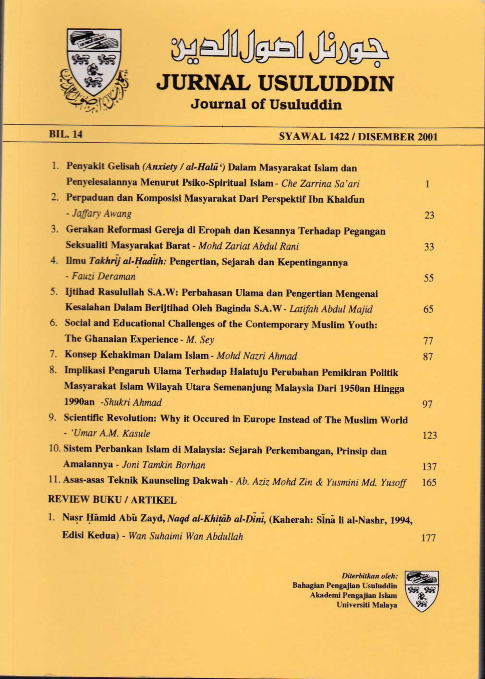Scientific Revolution: Why it Occurred in Europe in Stead of the Muslim World
Main Article Content
Abstract
This article seeks to explain the paradox that has baffled many historians of science, that is, how could the European Dark Ages easily give way to a "scientific revolution" in the 17th century' Indeed for several centuries or throughout the Middle Ages, a period ranging between 800-1500 C.E, Europe languished in the back yard of the history of learning. The European Mind during this period was clouded with superstition as was reflected in the barbaric acts of burning witches and even killing scientists with impunity. Yet all of a sudden (barely after 100 years), in the 1600's a scientific revolution was not only set in motion but also broke out with amazing success. Various view shave been given to explain this phenomenon, but one of them has been more often than not, downplayed; and this the contribution of the Muslim scientists during the Middle Ages. The gist of our argument in this brief article is that the Muslims' contribution to science and learning is one of the major elements that cannot be avoided if the 17th century scientific revolution that occurred in Europe is to be fairly and coherently pounded.
